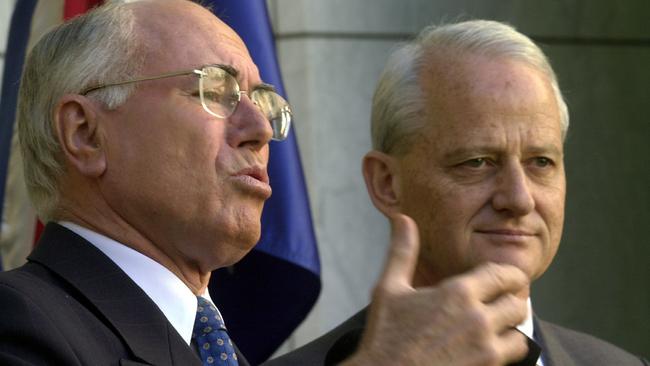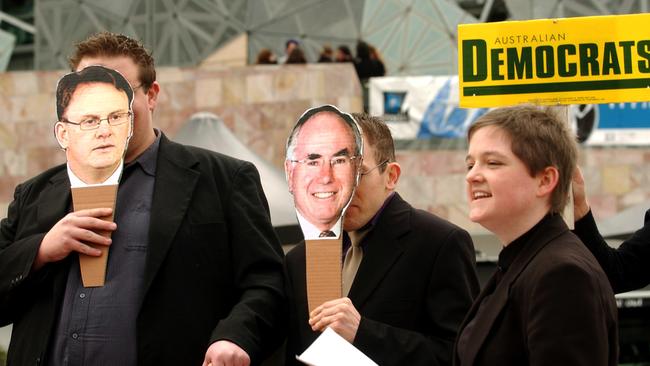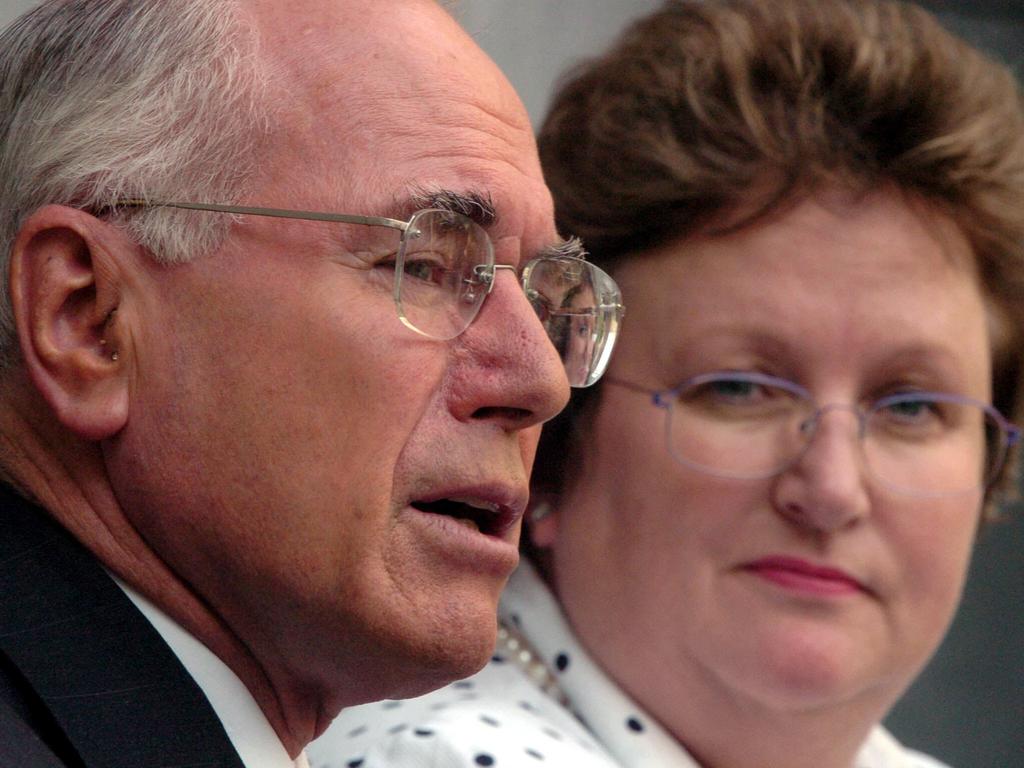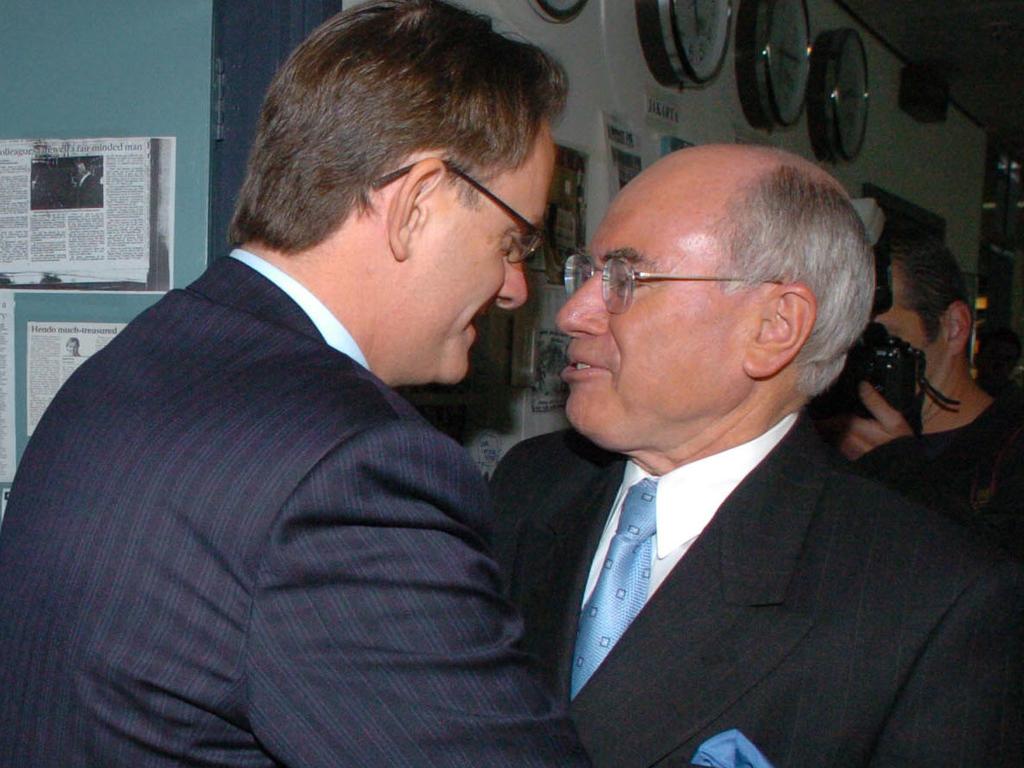2004 Cabinet Papers: Same-sex marriage anathema to John Howard
John Howard’s cabinet pondered banning gay couples from adopting foreign children by legislating against overseas same-sex unions, newly released documents show.

John Howard’s cabinet pondered banning gay couples from adopting foreign children by legislating against overseas same-sex unions in its response to the Labor-dominated ACT government’s push for marriage equality, newly released documents show.
Cabinet records reveal the Howard cabinet actively discussed banning gay couples from adopting children and banning legal recognition of same-sex unions performed abroad, which could have delayed the legalisation of gay marriage beyond 2017.
The purpose of the cabinet meetings itself was to “outline options to reinforce the traditional understanding of marriage as a union between a man and a woman” in reaction to the passage of ACT and state legislation relating to same-sex couples and allowing such couples to adopt children.
Plans to ban same-sex adoption from overseas were thwarted by Labor’s 2007 election victory but demonstrate the lengths the Howard administration went to, and complex stratagem it came up with in a bid to reinforce its traditional view of marriage.
Attorney-general Philip Ruddock played a key role in finding the legislative capacity for the Howard government to legislate its traditional view of marriage and provided multiple solutions in a memorandum dated February 27, 2004.
Mr Ruddock proposed to disallow the whole or part of the Parentage Act (ACT) and the Sexuality Discrimination Legislation Amendment Act (ACT), or suggest amendments to the ACT Legislative Assembly.
Another consideration was to legislatively prevent same-sex adoptions in the territories or limit the commonwealth’s constitutional power to limit the operation of laws enacted by the states and territories in specific areas such as same-sex adoptions.
Notably, the details of responding to states legislating adoption of children by same-sex couples were also outlined but are still hidden from the public.
It was also considered whether the Marriage Act should be amended to include an explicit statement that an overseas marriage between a same-sex couple entered into under the law will not be recognised as valid in Australia, and whether to reinforce the then legal definition of marriage in Australia.
It was suggested this would “serve as a statement” of the government’s position on the issue, but it was acknowledged it would “likely be controversial”.

The papers reveal that the Department of the Prime Minister and Cabinet supported the amendments to the Marriage Act 1961, as it could forestall claims of same-sex marriages conducted overseas, consistent with Mr Howard’s policy stance. However, the department and cabinet were concerned the proposed approach to preventing marriage of “transsexuals” may not sufficiently consider cases when an infant is born with an unambiguous sexual identity.
The Treasury raised no issues, and Finance made no comments. The Department of Transport and Regional Services supported the presentation of options put forward in the cabinet memorandum.
The Department of Immigration and Multicultural and Indigenous Affairs said the proposed legislation would have “no immediate, practical impact” on migration or citizenship legislation. This would only emerge if an intercountry adoption program significantly changed its requirements to allow for a child to be adopted by a same-sex couple.
Ultimately, the cabinet agreed to formally define marriage as “the union of a man and a woman to the exclusion of all others, voluntarily entered into for life”, and to explicitly state that legal same-sex marriages from other countries would not be recognised in Australia.
The cabinet further agreed that the commonwealth should legislate through its constitutional “external affairs power” to provide that Australian law does not recognise an adoption by a same-sex couple overseas, under treaties on child adoption.
However, the cabinet noted this legislation would not preclude recognition in Australian law of other adoptions by same-sex couples overseas in accordance with the law of another country.
An ad hoc committee was also established, comprising the attorney-general, and the ministers for immigration and multicultural and Indigenous affairs, and employment and workplace relations to further examine the Australian Capital Territory Parentage Bill and Sexuality Discrimination Legislation Amendment Bill, any relevant legislation in the states and the Northern Territory, available commonwealth powers, and options concerning possible amendments to the Marriage Act 1916.






To join the conversation, please log in. Don't have an account? Register
Join the conversation, you are commenting as Logout